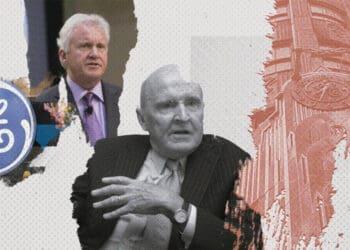This article was republished with permission from Michael Volkov’s blog, Corruption, Crime & Compliance.
Last week, the SEC announced another FCPA settlement involving the pharmaceutical industry for bribery in China. The SEC’s settlement filing represents yet another example of the pharmaceutical industry run amok in China, relying on targeted gifts, meals, entertainment and travel expenditures designed to increase sales of Novartis products in China. Novartis had to cough up $25 million.
The Novartis enforcement action, however, provides an important reminder to all companies operating in China – strict oversight and monitoring of gift-giving, hospitality and travel expenditures is required to conduct business in China. Assuming that reasonable gift, hospitality and travel controls are implemented, a company can navigate this area while simultaneously engaging in legal promotional activities and complying with the law.
Interestingly, Novartis’ campaign to corruptly influence foreign health care professionals to purchase Novartis products suffered from two significant categories of misconduct. First, Novartis personnel explicitly documented the intention of the gift-giving, hospitality and travel plan for health care professionals as a critical means to increase sales. There is a fine line between a legitimate marketing program and an illegal marketing program that is motivated by corrupt intent to influence health care professionals. Companies operating in China have to pay close attention to this fine line.
Second, Novartis confirmed its corrupt intent by creating documents that falsely represented the services and items provided and then made false entries in corporate records about such expenditures. A prosecutor looking at this evidence can easily cite these fake entries with inadequate documentation as proof of a corrupt intent to conceal the bribery scheme. Novartis made the job easy for SEC prosecutors.
In reviewing the illegal activities, some stand as important compliance reminders for every company and compliance professional. Let’s examine a few of them below:
- Two sales representatives submitted fake receipts for approximately $8,100 in reimbursement requests when the money was actually used for entertainment and gifts. In China, as everyone knows, there is a vibrant black market in the sale of fake receipts which can be used to justify expenditures for unauthorized purposes.
- A sales representative submitted a fake receipt for $1,154 to purchase holiday gifts for 25 health care professionals.
- Local travel and event planning companies were used for a variety of events to funnel gifts and pay expenses for non-business sightseeing and travel.
- Twenty Chinese health care professionals were sent to attend the American College of Surgeons 95th Annual Clinical Congress in Chicago. While there, the professionals were provided pure sightseeing or recreational activities, including a trip to Niagara Falls. The trip included payment for spouses, distribution of spending case ($150) and cover charges at a strip club. The trip itself to Niagara Falls may not have been a violation standing alone, depending on when it was scheduled (before, during or after the Congress), but in the context of paying for spouses, providing spending money and taking physicians to a strip club, the overall pattern raises significant problems in terms of intent.
- A number of invoices were paid to health care professionals totaling $25,000 for speeches allegedly given to other groups of health care professionals, but no documentation or proof was maintained to confirm the speeches were actually given and that the other professionals attended the event. In the absence of documentation, SEC prosecutors will reasonably conclude that the event did not occur and that the payments were nothing more than bribes paid for services never delivered.
The final nail in the coffin for Novartis was its patient data program, through which Novartis paid physicians to submit patient data for monitoring and assessing a specific drug. Unfortunately, Novartis launched this program without having it reviewed, approved and implemented by its quality assurance department, as required under its own policies and procedures.



 Michael Volkov is the CEO of The Volkov Law Group LLC, where he provides compliance, internal investigation and white collar defense services. He can be reached at
Michael Volkov is the CEO of The Volkov Law Group LLC, where he provides compliance, internal investigation and white collar defense services. He can be reached at 








